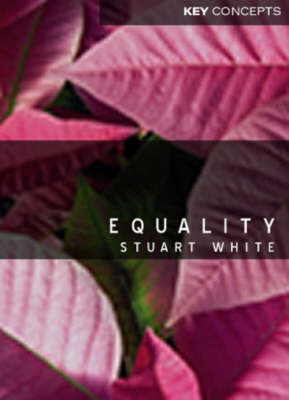Key Concepts
1 total work
This highly accessible book provides an engaging introduction to the concept of equality and to the debates, historical and contemporary, that surround it. It explains and critically considers how the demand for equality arises in different spheres.
In the political sphere, it explores the relationship between equality and democracy. In the economic and social spheres, it explores the ideal of meritocracy and more radical theories of egalitarian justice developed in the works of John Rawls and Ronald Dworkin. In the legal sphere, the book discusses the challenges that feminism and multiculturalism pose to conventional conceptions of equal citizenship.
It concludes with an examination of whether equality should go global, and by analyzing contemporary arguments for and against the continuing relevance of equality to the political life of affluent democracies. Throughout, the book considers the tensions internal to the demand for equality and between equality and other important values such as liberty and efficiency.
Drawing on political philosophy, sociology and the history of political thought, the book will be of interest to students and researchers in philosophy and the social sciences and anyone interested in the values that animate democratic political life.
